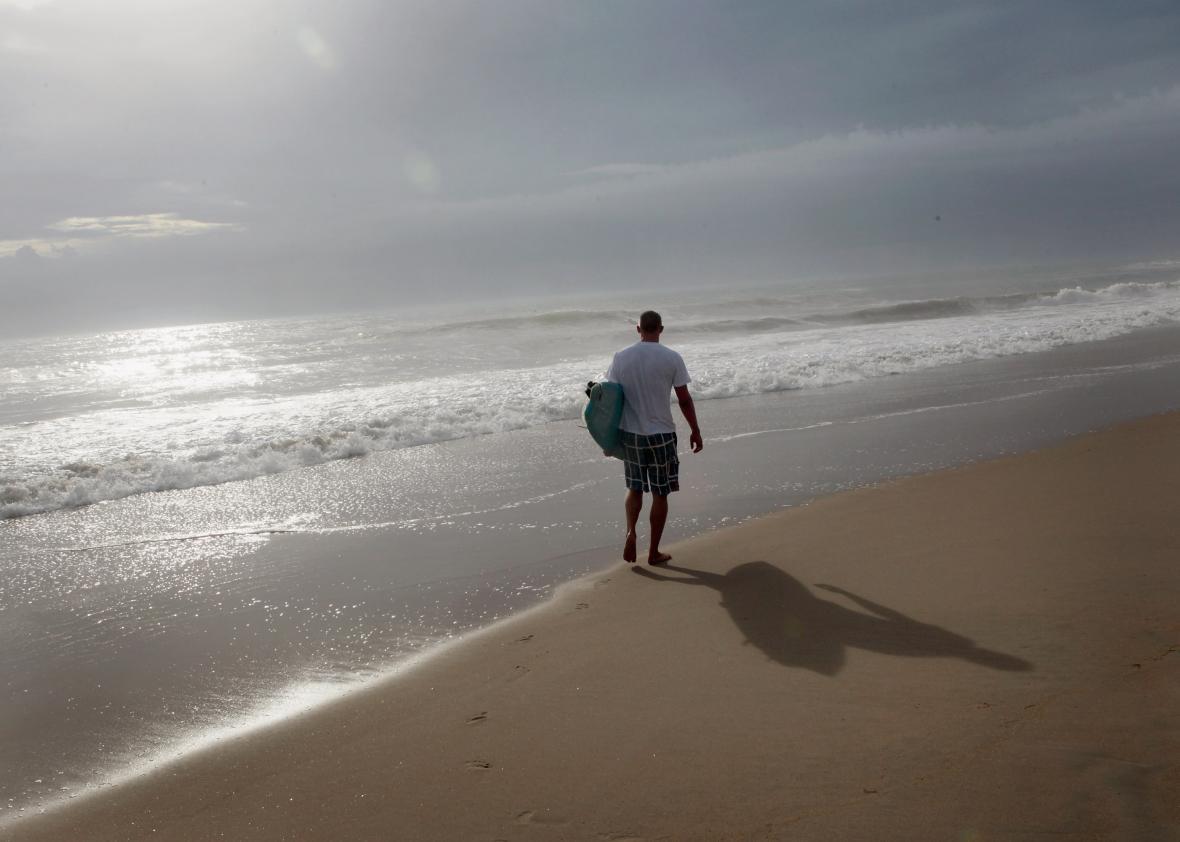Last week, the tiny town of Woodland, North Carolina, voted to reject construction of a solar farm and place a moratorium on further solar installations near its community. The reason, according to dozens of snarky stories from media outlets around the world: Residents feared that the daylight would be funneled into the panels, like water down a drain. They didn’t want the solar farm to “suck up all the energy from the sun.”
Except that’s not what happened. If you look back at the local news story that started all the furor, it’s unclear whether anyone at the meeting actually said the solar project would “suck up all the energy from the sun”—that was the reporter’s paraphrasing.* According to that news story, one of the speakers at the meeting, a retired science teacher, was concerned that photosynthesis, which depends upon sunlight, would not happen and would keep vegetation from growing. She said—again, paraphrased—that she has observed areas near solar panels where vegetation is brown and dead because it did not receive enough sunlight. More importantly, Woodland had already approved construction of three other solar farms, and it seems the opposition to this particular project was mostly for NIMBY reasons—the town wouldn’t receive any additional tax revenue from this particular project, for example.
There’s something interesting happening in North Carolina, especially when it comes to climate change and solar power—and it doesn’t fit the state’s reputation for backwardness on progressive issues.
On one hand, the state’s politicians have been firmly entrenched in climate denial for at least the last few years. In 2012, fearing that scientists’ predictions of more than three feet of sea level rise by 2100 would harm coastal development on the tourist-friendly Outer Banks, the state’s legislature chose to ban the use of the predictions altogether—with support of its outgoing Democratic governor. Instead, the state has chosen to use a report that only looks out 30 years, making the same projections appear smaller, “just” 11 inches. Last month, a North Carolina teen sued the state (and lost), arguing it wasn’t doing enough to prevent climate change. This is the North Carolina most people probably had in mind when they smugly shared this week’s viral stories about the Woodland city council’s decision.
On the other hand, a majority of the state’s residents accept that climate change is happening and have, overall, been supportive of solar energy. In fact, North Carolina now ranks second in the country in building new solar capacity, behind only California. In 2014, the state installed more solar panels than all other Southeast states combined, leaving the state with a more-than-50,000-percent increase in total solar capacity over the last eight years. A report earlier this year showed that 86 percent of the state’s new electrical generating capacity is coming from solar power, boosted by Duke Energy’s $500-million solar expansion and three Apple solar farms.
Given this context, it’s clear that what happened in Woodland was an outlier in a state that’s quickly become a renewable energy pioneer. For the time being, no one can say that North Carolina’s government isn’t doing its part to encourage a swift expansion of solar energy in the state—there are generous tax incentives in place that have recently been extended. However, these incentives have strongly favored large-scale commercial solar farms over family-sized rooftop units, and Republican Gov. Pat McCrory has said all incentives will cease at the end of 2016—but even that is only because the industry there has reached a critical mass, as evidenced by the hundreds of millions of dollars being poured in by private companies.
By characterizing North Carolinians as anti-scientific brutes, we underestimate the harsh economics of climate change. Most people, like the residents of Woodland, wouldn’t accept a project that doesn’t personally benefit them in some way, even if it is the right thing to do on a global basis. North Carolinians didn’t choose for their state to be located on the coast, but they are choosing to speed the transition to a world powered by energy that will limit the inevitably encroaching sea’s rise. For that they should be applauded, not ridiculed.
*Correction, Dec. 16, 2015: This post originally mistated that no one at the Woodland, North Carolina, town council meeting said a proposed solar project would “suck up all the energy from the sun.” It’s unclear whether anyone at the meeting said that. This post has also been updated to include more information about the meeting.
